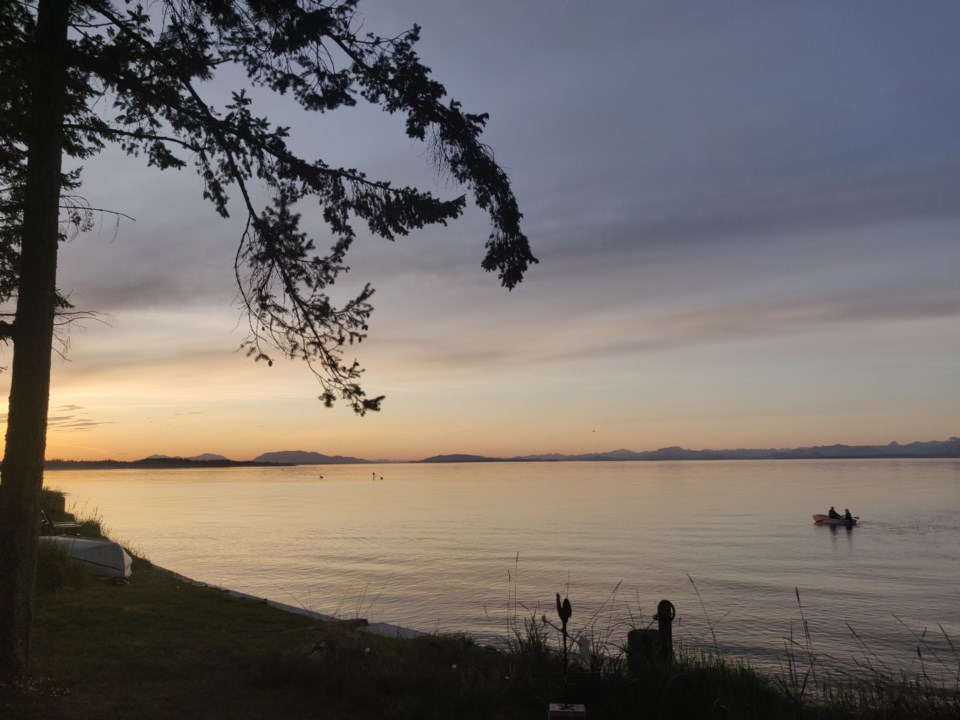For Canada Day long weekend this year, I joined my partner at her parents’ home south of Campbell River on Vancouver Island for a family get together. I love going there. From the backyard patio you can smell the sea breeze and look over the Strait of Georgia at the Coast Mountains and a handful of Gulf Islands. Like everywhere in B.C., it is always more beautiful and inviting when it’s sunny and 26 C, but I’ve learned to appreciate the darker and rainier days there, too. Staring out the window at coastal storms battering the shores while sipping my morning coffee is an experience I’ll never grow tired of.
Getting there, however, can be a different story. I’m sure you know what axe I’m about to grind, but in case you don’t, here’s a hint; it starts with “BC” and ends with “Ferries.” I’m no lifelong islander, so I can’t speak to how much better or worse it used to be, but I struggle with Vancouver Island road trips as much as everyone else (for great insight on B.C.’s love-hate relationship with its principal and privatized ferry corporation I suggest reading Adventures in Solitude: What Not to Wear to a Nude Potluck and Other Stories from Desolation Sound by Grant Lawrence).
To abbreviate my BC Ferries rant; if you ever want to travel on weekends, holidays or a convenient time of day, it’s expensive, it’s busy and it adds hours to your regional road trip. And yes, I realize not all those things are the fault of BC Ferries.
Once you do get to the Island, though, it’s great. It is vast with more than enough coastline to go around and it has some great hiking, biking and even skiing if you know where to look (and when). You’ll forget all about the hassle of arriving at the terminal in time to validate your ferry reservations to get home. And that’s the point of where I’m going with this: What if we moved to the Island and made trips to the mainland the ferry affair instead?
The migration to Vancouver Island from other parts of B.C. and Canada has been a trend for a few years now, and not just for boomers looking for a more mild, slower pace to live out their retirement. Sea to Sky locals have been making the move for years, perhaps to raise their kids in a less hectic community, staking their claim in places like the Comox Valley and Sunshine Coast (like many, I consider the Sunshine Coast to be more of an Island region than a mainland region). A large contingent of aging Whistler pro skiers and snowboarders opted for the even more remote West Coast of the Island in search of surf and the chill lifestyle.
Like most great ideas, there always seems to be a lot more people who either thought of it first or were quicker to act. Since the COVID-fuelled land grab from urban centres to rural communities that began in late 2020, the price of homes on Vancouver Island has skyrocketed. Cumberland in particular, with its small-town vibe and one of the best mountain bike trail networks on the Island, became a real-estate feeding frenzy not unlike Squamish over the last decade. Having affordability—coupled with a lifestyle as close as possible to that of the Sea to Sky—has now become the choice of one or the other.
Back to enjoying the sunny view of the ocean. While I like the idea of making this slower-paced setting more permanent, it does have its drawbacks. Good jobs are harder to find on Vancouver Island unless you work in the marine or resource industries. The bike trails are amazing, but you won’t find the steep, consistent fall line of the terrain we get to play on in the Sea to Sky. Ditto for skiing. There’s a reason for Whistler’s success as a winter playground: no other resort can match its terrain and (relatively) convenient location so close to Vancouver. Mount Washington has held snowfall records historically, but its low-elevation terrain coupled with the new climate normal has made it more of a rain risk these days. But if you like paddling, sea kayaking and coastal hikes, you’re pretty well covered for summer activities.
I’m not ready to leave Whistler just yet. There’s still a lot of backcountry I want to explore and I’m not done throwing myself down crazy steep trails on my bikes. And having one of the world’s best ski hills down the road is something I never take for granted. But it’s always worth having a plan in place for when the body starts slowing down from all that stuff. The relaxed pace of “island time” might be the ticket, whenever that may be.
Vince Shuley promptly went to ride a big, steep Whistler mountain bike trail after writing this column. For questions, comments or suggestions for The Outsider, email [email protected] or Instagram @whis_vince.




